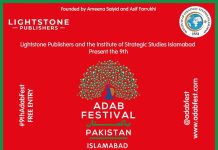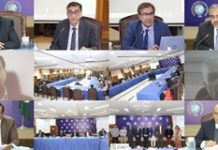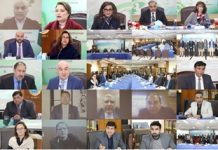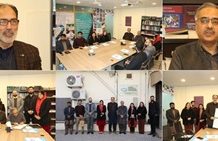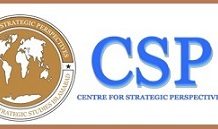Remarks by DG ISSI Ambassador Sohail Mahmood
at the 50th Foundation Day of ISSI
16 June 2023
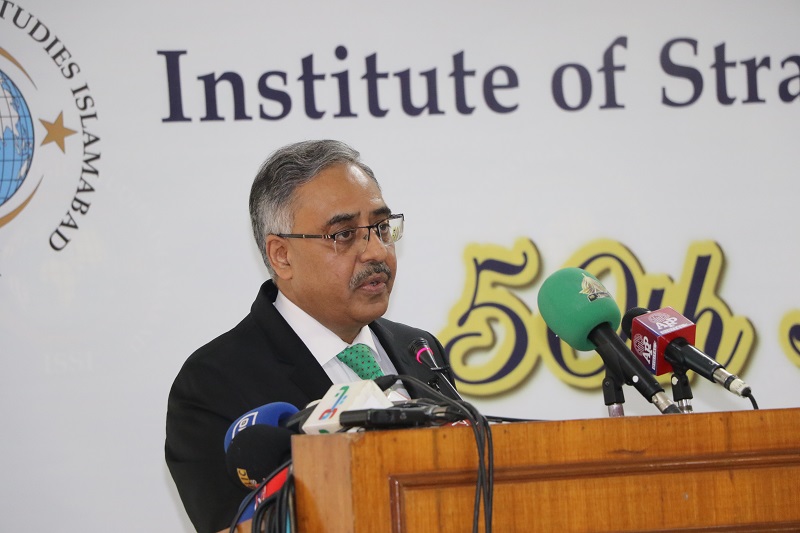
Honourable Foreign Minister,
H.E. Mr. Bilawal Bhutto Zardari,
Ambassador Inam Ul Haque Sb, Former Foreign Minister of Pakistan and former Chairman,
Ambassador Khalid Mahmood, Chairman BoG, ISSI
Ambassador Ashraf Jehangir Qazi Sahib,
Excellency, Ambassador Atadjan Movlamov, Dean of Diplomatic Corps,
Excellencies, Heads of Missions
Distinguished Guests,
This is an historic occasion for the Institute of Strategic Studies as we celebrate the 50th anniversary of its founding. We are deeply honoured to have you all as part of this commemoration ceremony.
We are particularly privileged to have the Honourable Foreign Minister – also the Patron of ISSI – who has taken the time out of his very busy schedule including pre-occupation with budget-related matters and graced this special occasion. The Foreign Minister’s consistent support and patronage has been a source of strength for us. On behalf of the ISSI family, and on my own behalf, I express our profound thanks and gratitude.
It is also a matter of deep honour to have amongst us a significant number of people who remained associated with ISSI in different capacities, at different times, and made invaluable contributions. On behalf of all my serving colleagues, I extend our most sincere gratitude to them all.
Distinguished guests,
On 16 June 1973, the Institute of Strategic Studies was founded by the directive of then President Zulfiqar Ali Bhutto, as an “autonomous policy research, and analysis center.” The Institute’s founders envisioned a dedicated forum for initiating and carrying out studies and research on subjects of Pakistan’s national security and defence as well as other international and allied strategic subjects.
While funded by the Foreign Ministry, the Institute was also envisioned to be an “autonomous” and “non-profit” body that would “not be an advocate of any particular interest or school of thought.” At different points in time, the national leadership reaffirmed the importance it attached to the Institute’s independent and autonomous character.
Distinguished diplomat Ambassador Agha Hilaly was appointed as the Institute’s first ever Chairman, and Mr. Ross Masood Husain, its first Director (just recently we lost Mr. Ross Masood. May Allah rest his soul in eternal peace. Ameen).
The Institute commenced its work from Room No.218 in the Foreign Office. Some months later, it was moved to a hired accommodation in Sector F-6/3. From January 1979 to December 1986, it functioned from another rented house in F-6/3. In 1986, it finally moved to the present building, which was purpose built for ISSI.
Over the past fifty years, the Institute has performed its assigned functions admirably. Through its flagship Journal (Strategic Studies), publication of books, specially commissioned Reports and monographs, Issue Briefs and Confidential Briefs, the Institute has analyzed the impact of global and regional developments on Pakistan and suggested a way forward from its vantage point.
Through Seminars, Conferences, In-House Discussions, and by convening mega events like Islamabad Conclave, ISSI has provided an important platform for broad-based and informed public discourse. Besides our own national leaders, ISSI was also privileged to host global figures like Nelsen Mandela, Prince Hasan bin Talal, President Ashraf Ghani, Foreign Minsters Javad Zarif and Maulavi Amir Khan Muttaqi and many more.
The Institute has also contributed to narrative-building on issues of core interest to Pakistan.
In this journey, the Institute has been led by men and women of immense caliber — from eminent scholars to distinguished former diplomats to accomplished ex-Servicemen to renowned academics. Fortunately, some of them are also here and they happen to be my own mentors as well. But for their toil and hard work, ISSI would not be where it is today.
In these past five decades, the Institute has also been served well by a large number of scholars and researchers, who formed part of the Faculty and their bright ideas and meticulous research enriched ISSI’s output in quantitative and qualitative terms. I take this opportunity to also gratefully acknowledge their services.
Distinguished participants,
It is important to recognize that think-tanks are a vital component of the policy eco-system. They offer a vital platform to a range of stakeholders – most importantly scholars and policy-makers – to constructively engage, collaborate on ideas, generate research, and impact policy.
Our constant endeavour at the ISSI has been to reduce the gap that has traditionally existed between the academics and the practitioners. We are convinced that the best way to do this is to be independent, objective, and non-partisan. Also to be proactive and persistent.
At present, the Institute’s work is being carried out through 5 Centres, with distinct geographic and thematic focus: China-Pakistan Study Centre (CPSC); Centre for Afghanistan, Middle East & Africa (CAMEA); India Study Centre (ISC); Arms Control and Disarmament Centre (ACDC); and Centre for Strategic Perspectives (CSP).
On this 50th Foundation Day, we are launching 3 new books and 3 Special Reports that are the outcome of valuable efforts of our Research Faculty and authors from outside. The themes that they focus on relate to strategic stability in South Asia in view of India’s shifting nuclear doctrines and force posture; efforts to foster peaceful co-existence in South Asia through economic cooperation and climate diplomacy; and Pakistan’s position in the evolving global environment, particularly relevant to its strategic frontiers (to the West). Furthermore, they focus on enhancing connectivity and engagement with Central Asia & Azerbaijan; regional cooperation on climate change; and ways to strengthen the human security dimension of national security.
During the course of this event, these publications would be presented to the Honourable Foreign Minister and we would later hold separate events to formally launch each of these.
Over the past several decades, the Institute has also built partnerships with counterpart national and international think-tanks. Thus far, over 70 Protocols/MoUs for cooperation have been concluded. The lastest in the series was signed with a Belarusian think-tank this month in the gracious presence of the Foreign Ministers of the two countries.
Going forward, the Institute will focus its endeavours on strengthening its interface with all relevant national institutions; promoting interaction with the private sector, civil society and the youth as important stakeholders in the policy process; expanding beneficial collaboration with counterpart think-tanks in major parts of the world; increasing the spotlight on key regions including ASEAN, Central Asia and Africa; keeping focus on global issues such as climate change and arms control &disarmament; and accentuating the pivot to geo-economics as part of comprehensive national security.
On behalf of the Institute, I reassure our esteemed patrons that ISSI would continue its quest for greater excellence and serve the country as a premier think-tank.
Honourable Foreign Minister,
Distinguished guests,
We are going through another defining moment in world history. Evidently, the era of a single pre-dominant power is drawing to a close, while an era of multiple powers is seeking to take shape. The ‘rise of the rest’ seems to be an emerging reality. However, despite claims to the contrary, the proverbial ‘Thucydides trap’ appears to be in full motion. The intensifying great-power contestation is fraught with serious consequences. A spectre of bloc politics and another cold war is haunting the whole world.
Prudence demands that zero-sum perspectives are avoided, countries are spared the dilemma of making painful choices, and the main protagonists are convinced of the benefits of economic inter-dependence as well as the virtues of peaceful coexistence and win-win cooperation. The opportunities that would open up in the wake of a world defined by cooperation, not confrontation, would be enormous. The potential unleashed by the recent rapprochement in the Middle East is just one glimpse. Much more is possible.
In this overall context, middle powers like Pakistan have an important role to play. A country of 230 million enterprising people, located at the crossroads of three strategic regions, a leading nation in the Muslim world, and a nuclear power – Pakistan is pivotal in its own right. It can and should be able to pursue its destiny, if it remains faithful to the vision of its founding father.
The core principle of the Quaid’s foreign policy vision was, ‘peace within, and peace without.’ This is possible only with political stability and sustained economic growth. As the experience of other nations shows, a successful foreign policy rides on the back of a stable polity and a strong economy.
With these thoughts, I once again thank all the guests for joining in our celebration of this major milestone in ISSI’s eventful journey. We remain profoundly grateful to everyone who has contributed to making ISSI what it is today.
I also take this opportunity to thank all the ISSI colleagues, both part of the Research Faculty and the Administration, for their tireless efforts in putting together all the arrangements for these celebrations and for being ready to take up the challenges and opportunities of the future.
I am sure you are all eager to hear the Foreign Minister’s perspective on the strategic issues of the day and his views on Pakistan’s role and place in the world.
I thank you all.




